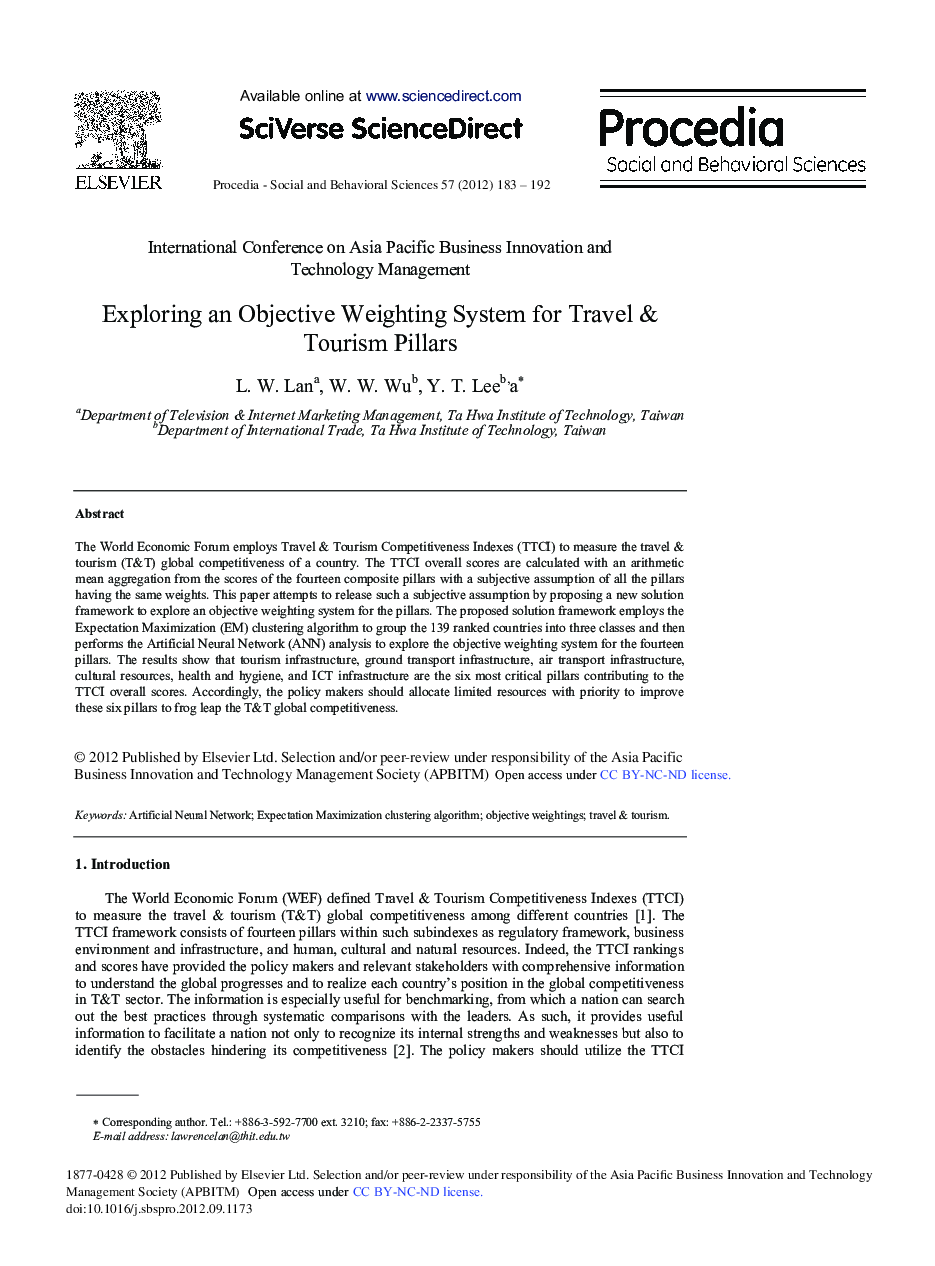| Article ID | Journal | Published Year | Pages | File Type |
|---|---|---|---|---|
| 1120878 | Procedia - Social and Behavioral Sciences | 2012 | 10 Pages |
The World Economic Forum employs Travel & Tourism Competitiveness Indexes (TTCI) to measure the travel & tourism (T&T) global competitiveness of a country. The TTCI overall scores are calculated with an arithmetic mean aggregation from the scores of the fourteen composite pillars with a subjective assumption of all the pillars having the same weights. This paper attempts to release such a subjective assumption by proposing a new solution framework to explore an objective weighting system for the pillars. The proposed solution framework employs the Expectation Maximization (EM) clustering algorithm to group the 139 ranked countries into three classes and then performs the Artificial Neural Network (ANN) analysis to explore the objective weighting system for the fourteen pillars. The results show that tourism infrastructure, ground transport infrastructure, air transport infrastructure, cultural resources, health and hygiene, and ICT infrastructure are the six most critical pillars contributing to the TTCI overall scores. Accordingly, the policy makers should allocate limited resources with priority to improve these six pillars to frog leap the T&T global competitiveness.
